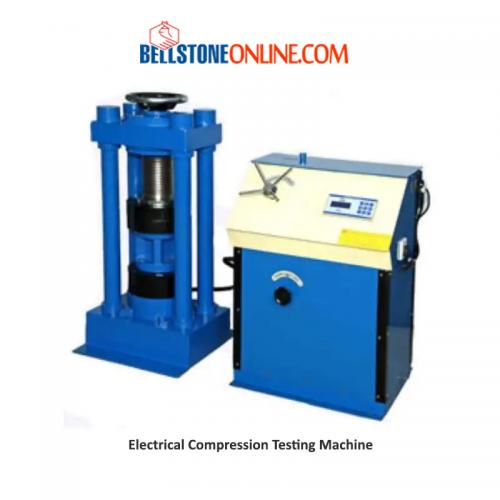How Compression Testing is done with a Compression Testing Machine

Compression
testing
is used in order to determine how a product or material reacts on compression,
squashing, crushing or flattening by measuring fundamental parameters which
determine the specimen behaviour when it is under a compressive load.
More about Compression
Testing Machine (CTM)
Compression
Testing Machine (CTM) comes in both Analog and Digital type. One can buy it
according to the industry need. Today, a user can visit online easily to book
order for Compression Testing Machine (CTM) online at a comparatively lower
price.
Some of the Compression Testing Machine (CTM) applications
are as follows:
Ø 1-It helps to determine batch quality
Ø 2-It helps in determining the consistency in manufacture
Ø 3-It aids the design process
Ø 4-It helps to reduce material costs as well as to achieve lean
manufacturing goals
Ø 5-It helps in ensuring compliance with international and industry
standards.
Why is the compression test
conducted?
A compression test is more
commonly done in the construction industry to check the concrete behaviour
under the load. It helps to determine the quality of the concrete used in a
construction project. Compression tests are generally performed to know the
behaviour of a material under the load. The maximum the load a material can
sustain, the more is the strength resulting into longer life.
Some of these parameters
include the elastic limit which for "Hookean" materials are
approximately equal to the proportional limit and also known as yield point or
yield strength, Young's Modulus (these, although mostly associated with tensile
testing, may have compressive analogues) as well as compressive strength.
Compression
testing can be done as part of the
design process, in the production environment. It can also be done in the
quality control laboratory and can be used to assess the strength of components.
E.g. automotive and aeronautical control switches, compression springs,
bellows, keypads, package seals, PET containers, PVC / ABS pipes, solenoids,
etc.
This test also helps us characterise
the compressive properties of materials. E.g. foam, metal, PET and other
plastics and rubber as well as to assess the performance of products. E.g. the
expression force of a syringe or the load-displacement characteristics of a
tennis ball.
Compression
testing machines are universal testing machines which are specially configured in
order to evaluate static compressive strength characteristics of materials,
products, as well as components. Our compression test machines work to measure
characteristics like the ultimate compression strength, yield strength,
deflection, and also modulus.
Each of the compression testing machines is
configured to your test applications. This is done by application engineers who
have an appropriate controller, grips, and accessories. Compression testing
machines usually have a modular machine design, your compression test machine
can thus be equipped to perform other applications like tensile, cyclic, shear,
flexure, bend, peel, tear if appropriate fixtures are added.
While choosing a compression
testing machine online you first need to determine your specimen
geometry, size, and strength characteristics. Once you have the appropriate
information, applications engineer will be able to identify the test machine
capacity and compression platens which are needed to crush your sample. The
next step is to decide the test data you want that will help in confirming the
best controller and test software.
Compression testing comes
with a number of benefits. It provides data on the integrity and safety of materials,
components, and products. This helps the manufacturers ensure that their
finished products are fit-for-purpose and that they are manufactured to the
best quality. Some of the data produced in a compression test can be used in
many ways.

Comments